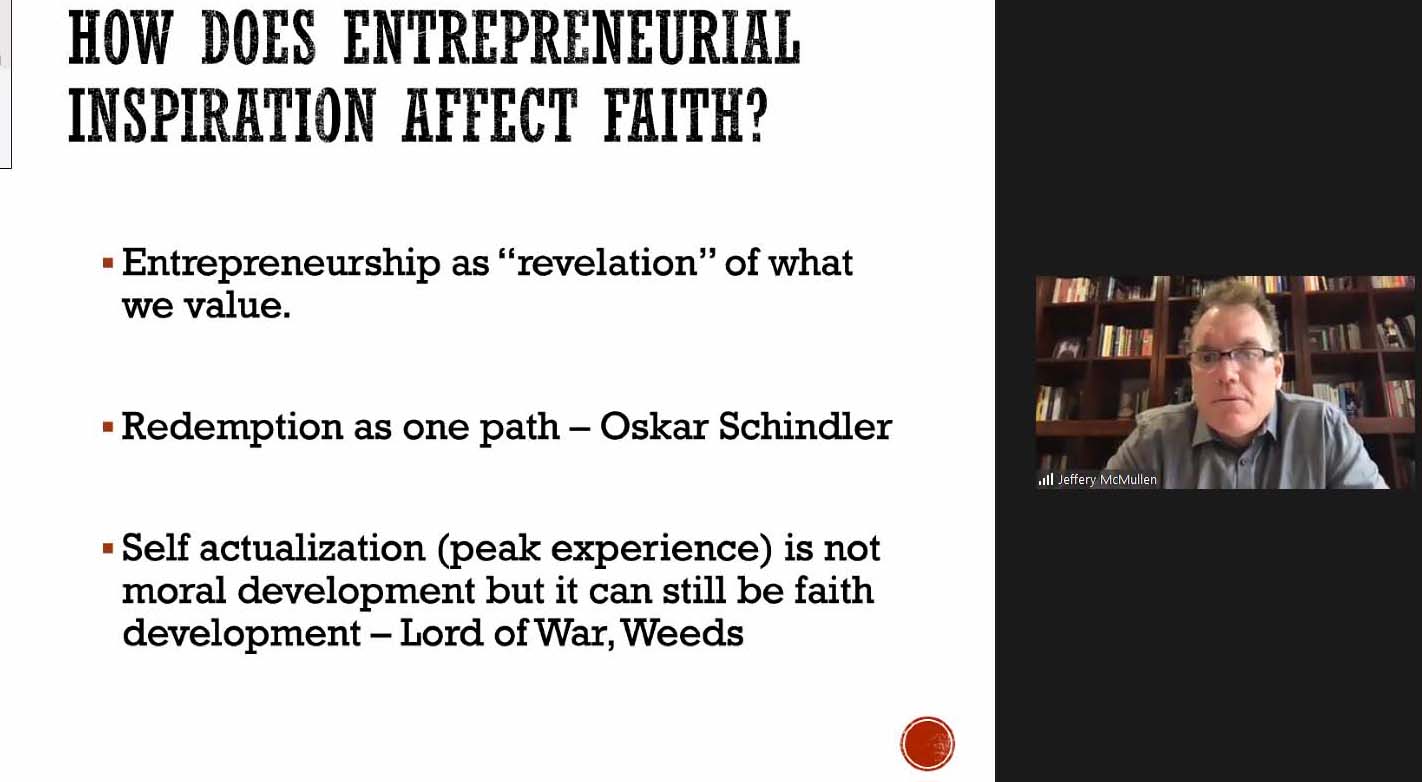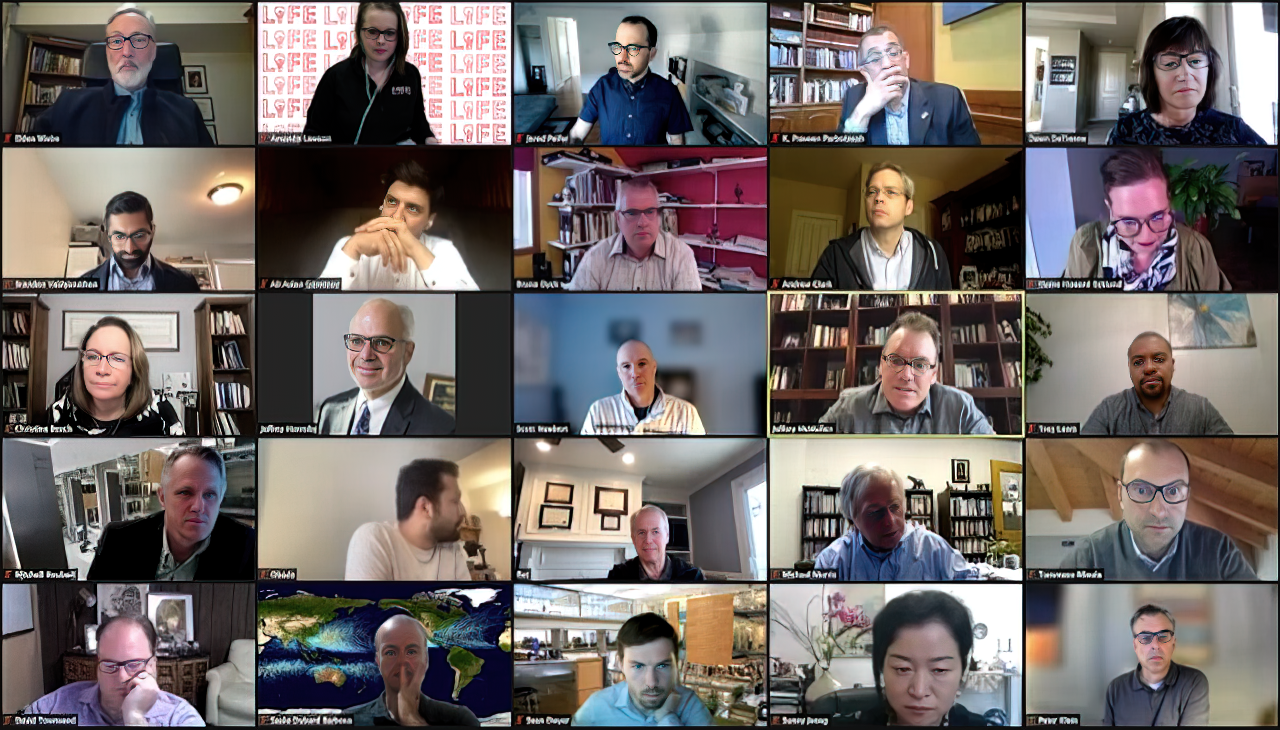Bringing the first international faith & entrepreneurship academic conference to L.I.F.E.


More than 120 academics from around the world spent a day discussing the ways faith and entrepreneurship intersect at the first Annual L.I.F.E. (Leading the Integration of Faith & Entrepreneurship) Research Conference hosted virtually by the John W. Altman Institute for Entrepreneurship.
The conference tapped into the growing movement around the world where entrepreneurs and investors are increasingly integrating their faith into their entrepreneurial ventures. It featured 32 world-class scholars, including two keynote speakers and six breakout sessions, addressing how the integration of faith reframes entrepreneurial antecedents, processes, and outcomes. The conference was sponsored by the Farmer School of Business, Faith Driven Entrepreneur and Investor, and the Dan and Saroya Williamson Family Foundation.
"The L.I.F.E. Conference achieved its goal: to advance the academic conversation on the role of faith and entrepreneurship,” said Dr. Brett Smith, Cintas Chair in Entrepreneurship & Founding Director, L.I.F.E. Research Lab. “We are excited about how the L.I.F.E. conference may accelerate practically-relevant, academically-rigorous knowledge in premiere academic journals on the growing practice at the intersection of faith and entrepreneurship."
“Given that 80% of the world’s population claims faith as important in their lives, to ignore this aspect of individuals as we study entrepreneurship is bad science. I don’t believe we yet have any idea the extent to which or how, exactly, one’s faith influences their engagement in entrepreneurship, nor the extent to which entrepreneurship might influence one’s faith,” Dr. Melissa Cardon, Haslam Professor of Entrepreneurship & Innovation at the University of Tennessee explained. “Bringing together individuals who are experts in different aspects of entrepreneurship with individuals who are experts in faith and religious studies was a huge step forward in opening up these conversations so that we can start to examine this more deeply.”
Dr. Jeffrey McMullen, the David H. Jacobs Chair in Strategic Entrepreneurship at Indiana University, kicked off the conference with an opening keynote that addressed how religious faith can shape the path and process for their entrepreneurial spirit. “We have the influence of others. That's going to shape our spirituality to a large extent. The spirituality then shapes, perhaps, how the entrepreneurs are inspired by that inspiration. That inspiration then goes through faith, and this meaning-making process ends up over an entrepreneurial commitment,” he said.
Dr. Roy Suddaby, the Winspear Chair and Professor of Entrepreneurship at the University of Victoria, concluded the conference with a final keynote. “Entrepreneurship is perhaps the ultimate expression of human creativity. But it may actually may be one of the defining elements of what it means to be human. But what happens to that complexity, to that nuance when we start looking at what is a holistic intersection between the material and the metaphysical, either solely through a material or a solely through a metaphysical lens?” asked Suddaby. “I think we need a humanitarian and a metaphysical approach. And by that, I mean a methodology that will allow us to open ourselves to describing the empirical world, not simply in the way it is, but encourage us to theorize about it and analyze it in much more normative ways. We need to understand not just the world we're living in, but what are the alternatives and the opportunity to select, if we can, the best of all possible worlds.”
“The conference was excellent because it brought together a broad range of individuals that come from a variety of academic and faith perspectives. I agree with a panel participant who said ‘This seems like it’s the start of something very big and I want to be part of it,’” Cardon said.
“Thanks to the participation of world-class scholars, the conference was described by participants as a 'water-shed event,' 'an event that we'll look back on as the creation of a new sub-field in entrepreneurship research' and 'super important because it introduces a conversation that is long overdue,'” Smith said. “The goal was really to take a next step, to build on what has come before us, to encourage more research, and to chart out new directions at the intersection of faith and entrepreneurship. And, we've done just that with the first L.I.F.E. conference.”


